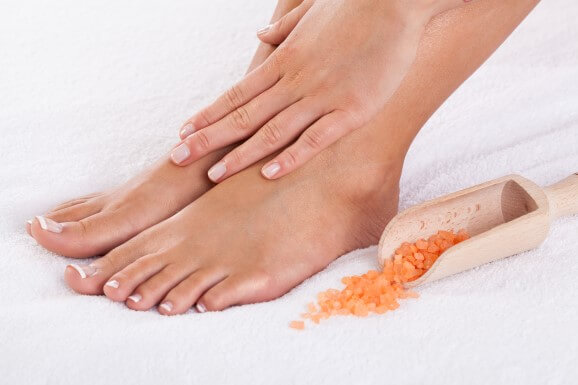
Diseases and conditions involving toenails and fingernails can be diagnosed and treated at Florida’s Dermatology and Skin Cancer Center in Windermere.
From nail fungus to ingrown nails, these condition can be painful and embarrassing for patients. At Dermatology and Skin Cancer Center, Dr. Jeannette Hudgens and our medical team are experts at treating nail diseases. For more information, or to make an appointment, contact Dermatology and Skin Cancer Center today.
The American Academy of Dermatology offers helpful information about nail diseases, treatments and prevention.
Some facts:
- Fingernails grow more quickly than toenails — and faster on your dominant hand.
- Typically, fingernails grow about 3.5 mm each month. Toenails grow about 1.6 mm every month.
- These growth rates depend on your age, the season, your activity level and family medical history.
- Men’s nails grow more quickly than women’s nails.
- Nails grow faster in the summer.
Your nail health and growth can be impacted by nutrition, medications, trauma, fever and by getting older.
Nail problems comprise about 10 percent of the total number of reported dermatological conditions. It’s important to remember that our nails often can tell us how our overall health is doing.
Nails that thicken or become discolored can be signs of more serious medical problems, including liver and kidney problems, lung and heart conditions, diabetes and anemia.
Signs that indicate potential nail problems include:
- Changes in color.
- Changes in shape.
- Changes in nail thickness.
- Swollen skin around your nails.
- Pain or bleeding.
Nail problems tend to emerge as we get older and seniors are more vulnerable to nail diseases and conditions. At Dermatology and Skin Cancer Center, we can treat patients of all ages.
Many nail disorders, about 50 percent, are caused by fungal infections. These infections are more likely to occur in toenails because your feet are often in socks and shoes. This moist and warm environment can promote infection.
In some rare cases, melanoma skin cancers can emerge underneath nails. These are often mistaken for an injury, so it’s important to have your nails checked out by a dermatologist if:
- Dark-colored streaks appear inside the nail plate.
- Streaks do not fade or improve over time.
- The size of the streak grows.
Some other nail problems that affect many people include:
- White spots that emerge on the nails following an injury.
- Vertical lines, known medically as splinter hemorrhages. These appear under the nails and often follow an injury. They also can be caused by certain medications or diseases.
- Bacterial infections. These are typically the result of injury, but also can be caused by poor hygiene, excessive nail biting or frequent water exposure.
- Ingrown toenails: This common and painful problem can be the result of improper nail clipping, tight shoes and even digestive issues.
If you are having issues with your nails, it’s time to have them checked out by a dermatologist. Don’t let nail fungus, ingrown nails or other nail problems leave you feeling self-conscious or in pain. To schedule your nail examination, contact Dermatology and Skin Cancer Center today.
